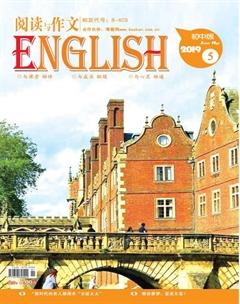整容噩梦:爱美无罪!
Chinese businesswoman Chen Yili paid a South Korean hospital thousands of dollars to reshape her face in the hope she would look more like the glamorous stars she saw on television.
Instead she says she was disfigured by the operation—one of a growing number of Chinese women who claim shoddy procedures and a lack of regulation in South Koreas booming “medical tourism” industry, have left them physically scarred.
“They said they would design my face to look like a South Korean, and help me design a new nose, lips and chin, but (afterwards) when my friends saw my nose they were all shocked. They said it was crooked (and) ugly,” Chen said.
Seoul on Friday announced a crackdown on illegal brokers and unregistered clinics in a bid to protect medical tourists, especially those drawn by the countrys huge plastic surgery industry.
The country is a cultural powerhouse in Asia—its soap operas and pop music videos are massively popular in China and often feature cosmetically-enhanced stars.
While Chinas domestic plastic surgery market is worth tens of billions of dollars, persistent safety concerns are driving growing numbers of wealthy consumers abroad.
South Korea has pushed hard to foster its so-called“medical tourism” industry, which was worth the equivalent of nearly $360 million in 2013, according to official figures.
China topped the medical tourist list with more than 25,400 visitors, an increase of 70 percent from the previous year according to the South Korean health ministry.
Chinese tourists generally pay more than twice as much as locals for cosmetic procedures, Chinese newspaper Southern Weekly reported this month.
Dozens of South Korean clinics have Chinese-language websites, some offering surgery alongside sightseeing vacations, with promotions offered during Chinese holidays.
One clinic promises to provide “almond shaped eyes” and a “magical V-shaped face”—considered the ideal of feminine beauty in much of East Asia. Another is seemingly full of glowing testimonials from past patients.
While most procedures in South Korea appear to occur without incident, last month attention focused on the industry after a 50-year-old Chinese woman was left in a coma by a clinic in Seouls up-market Gangnam district.
As much as a third of Chinese patients costs can go towards fees for brokers who act as liaisons for the hospitals. Chen said after making initial enquiries she was contacted “incessantly” by an agent and felt 5cajoled into having the surgery.
She spent more than $26,000 dollars on the surgery in 2010 at the Beauty Line clinic in Seoul. One of her procedures involved having cartilage taken from her chest and added to her nose to make it more prominent.
But upon returning to China, she began to suffer from nasal infections. Now staying at a clinic in Beijing, she says her mental health suffered and she is taking 12 antidepressants a day.
“Ive lost sleep, I cant meet with friends, and I suffer from depression, because my nose is just too ugly,” she said.
“I feel tricked. I think the industry is protected by (South Koreas) government, because its a key source of revenue,” she added.
Park Ji-Hye, an official at South Koreas health ministry, told AFP that “activities involving illegal brokers and inflated fees, as well as disputes over malpractice, are sparking complaints from foreign patients.”
Hoping to bring the industry into line, authorities last Friday declared that owners of unregistered facilities treating foreign patients could be punished with jail sentences.
“Some clinics are treating Chinese patients without a state license allowing them to treat foreign patients, because obviously thats where the money is,” said Cho Soo-Young, spokesman for the association of Korean plastic surgeons.
Back in China, an online support group made up of hundreds of victims of alleged botched cosmetic procedures done in South Korea has begun a campaign to highlight these problems.
“You start to believe that cosmetic surgery is something magical that can change your life. We have to take some responsibility ourselves, for not understanding the industry, and being too trusting,” said group organiser Jin Weikun.
Many women in the group added that clinics had not warned them of potential risks.
Winnie Wang, 45, said she was “devastated, cried and even attempted suicide” after an operation in 2013 left her with unequally sized eyes.
Yu Lijun, a designer, underwent one of the most controversial procedures at Seouls Faceline clinic—“doublejaw” surgery—which involves cutting the bone to produce a slimmer jawline. Today her mouth is visibly misaligned, making it hard to eat and prompting her to wear a facemask at all times.
But Faceline disputed this, saying Yu had been through two botched surgeries in China that had left her mouth crooked before coming to them for help fixing it.
“We sent Yu back several times because the risk was too big, but eventually decided to treat her after her repeated pleas for weeks,” the clinic said in a statement, adding that she did not follow post-surgery care instructions.
Beauty Line, which is licensed to treat foreign patients, said it could not locate Chen Yilis file as its records are in Korean and do not contain patients names in Chinese. The company did not return calls from AFP after being contacted by a reporter with proof of Wangs history at the clinic.
It also said Mi had signed a pre-surgery statement acknowledging potential side effects to her procedures. Mi Yuanyuan, a Chinese actress, said a 2013 operation left her with regular pain in her nose, as well as numbness and hair-loss on her forehead.
“They said there werent any risks. They said the surgeon was as famous as the Hermes bag I was carrying,”the 38-year-old said.
“I would warn people not to be attracted by the South Korean fairytale.”
懷着要变得像电视明星一样迷人的美好愿望,中国女商人陈怡丽向韩国一家医院支付了数千美元进行脸部整形手术。
然而,她说自己被这场手术毁了容——越来越多的中国女性对劣质整形手术提出索赔,陈女士便是其中之一。蓬勃发展的韩国“整形旅游”行业缺乏监管,使这些女士身体受损。
“他们说会把我的脸设计成跟韩国人一样,帮我重塑一个新的鼻子、双唇和下巴,但是(后来)当我的朋友看到我的鼻子时,他们都被吓到了。他们说我的鼻子歪了,很难看,”陈女士说。
本周五,首尔政府宣布打击非法经纪人和未经登记注册的诊所,旨在保护医疗游客,特别是被该国庞大的整容行业所吸引的游客。
韩国是亚洲的文化强国——该国的肥皂剧及流行音乐视频在中国广受欢迎,主角通常是一些整过容的明星。
中国国内整容市场拥有数百亿美元的市场潜力,持续的安全问题促使越来越多的高端消费者走向海外。
韩国政府大力促进其所谓的“医疗旅游”业,官方数据显示,这一行业在2013年为该政府带来了等同于接近3.6亿美元的经济收入。
韩国卫生部称,中国以25,400人次位居医疗游客榜单之首,比去年增长70%。
中国报纸《南方周末》本月报道,中国游客到韩国进行整容手术,通常需支付比当地人高两倍以上的费用。
许多韩国整容诊所开设了中文网站,部分诊所在提供手术之余,也提供观光度假服务,如遇中国节假日,还有促销活动。
其中一家诊所承诺可以塑造出“杏眼”和“神奇V脸”——在东亚各国,这样的五官被认为最能展现女性之美。另一家则似乎获得了许多过往顾客的光辉印证。
尽管大多数韩国整容手术看似并未出现任何意外,但是上月,一个事件引起了人们对该行业的关注:一名五十岁的中国女性在首尔高档商业区江南区的一家诊所进行手术时陷入了昏迷。
为中国人联系医院的经纪人,最高可拿到整容费用的三分之一作为提成。陈女士说,在进行前期咨询之后,一个代理人“不停地”给她打电话,她感觉自己是被花言巧语诱骗才做的手术。
2010年,她花了26,000美元,在首尔的“善美高恩”诊所做了整容手术。其中一个手术需要从她的肋骨中取出软骨填入鼻梁,使鼻子更加挺拔。
但是,回国之后,她的鼻部受到了感染。现在她正躺在北京一家诊所里,说自己身心俱受折磨,每天需要服用12种抗抑郁药物。
“我无法入睡,不敢见朋友,还患上了抑郁症,全因为我的鼻子实在太丑了,”她哭诉道。
“我感觉上当受骗了。我认为这一行业受到(韩国)政府保护,因为这是一个很重要的收入来源,”她补充道。
韩国卫生局官员朴智慧告诉法新社,“非法经纪人和滥收费行为,以及不当治疗引起的争议,正引发海外患者的投诉。”
为了让整容行业重返正轨,有关当局上周五宣布,为海外患者进行手术的非法诊所所有人将可能面临牢狱判刑。
“有些诊所在未获得国家颁发的治疗海外患者许可证照的情况下,为中国患者做手术,这显然是因为有利可图,”韩国整形外科医生协会发言人曹秀英如是说。
回到中国,一个网络互援团体开展了一场声讨运动,该问题因此引起了关注。该团体由一群自称在韩国整容失败的受害者组成。
“一开始你以为整容是一个能改变你人生的魔术。我们不了解这个行业,这一点难辞其咎,我们也太轻信别人了,”该组织的发起人靳魏坤如是说。
该组织的许多女士表示那些诊所并未告知他们手术的潜在风险。
45岁的王温妮说2013年她接受了一次手术,最终导致其眼睛大小不一,她“彻底崩溃了,终日以泪洗脸,甚至试图自杀”。
余丽君是一名设计师,在首尔Faceline诊所接受了最受争议的整容手术——双颚手术——手术需要削除部分骨头以塑造更纤细的下颚线条。如今,她的嘴巴明显不对称,嚼食艰难,她不得不一直戴着口罩。
然而Faceline诊所反驳此事,称余女士此前在中国做过两次失败的整容手术,导致嘴巴畸形,赴韩找他们帮助她矫正。
“我们多次劝喻余女士回国,因为这个手术的风险太大,但是在她几个星期的再三恳求下,我们才最终决定帮助她修复,”诊所在某次声明中如是说,并补充称她并没有遵循术后康复指导。
“善美高恩”是已经获得治疗海外患者许可证的诊所,宣称无法找到陈怡丽的档案,因为其手术记录均为韩文,其中并未包含任何中文姓名。一名记者找到了王女士在该诊所的病历,并与其取得了联系,随后,法新社致电该企业,但未收到任何回复。
该诊所同时也指称宓女士已经签署了术前声明,知悉手术可能带来的副作用。宓圆圆是一名中国演员,她称2013年的一场手术导致其鼻子经常发麻疼痛,还伴随前额脱发。
“他们声称不存在任何风险。他们说这种手术就像我挽着的爱马仕手提包一样有名,”这位38岁的演员说道。
“我告诫人们不要被韩国的童话故事迷惑。”

